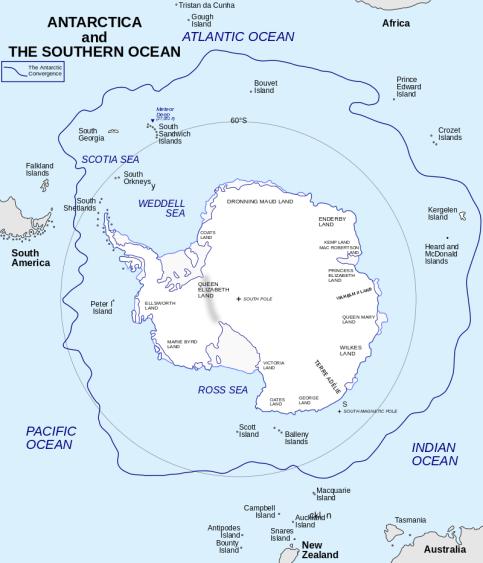Introduction

During the last 50 years the impact of invasive species has been an increasing concern. Studies have shown that biological invasions can affect whole ecosystems in diverse ways, both positively and negatively, depending on different variables. Invasive species interact with native species in the ecosystem they have invaded and create new trophic links, which can affect the system due to possible changes in abundance and demography of the native species. The invasive species do not only affect local species in a food web but can also alter the food webs structure due to the effects of the invasion and changes can propagate through the whole web.
In this study I specifically analyses the potential impact of invasive species in the Weddell Sea, which is a part of the Southern Ocean. The Southern Ocean is a very special ecosystem that surrounds Antarctica. Its unique food web structure developed during the late Eocene, about 40 million years ago, during a global cooling. Due to this cooling most of all fast-moving skeletoncrushing bony fish, sharks and crabs (durophagous predators) were excluded, which left an endemic living fauna of slow-moving invertebrates as top predators and epifaunal suspension feeders dominating many of the soft-substratum communities. The cooling created a physical barrier that isolated the Southern Ocean to biological invasion and prevented most of the durophagous predators passing through, due to limitation in their mobility because of the cold water. Over the past 140 years the average temperature of Earth’s climate has increased by approximately 0.85 degrees Celcius, and changes in global climate have led to changes in species geographic ranges, behaviour and phenology. Introduction and establishment of invasive and exotic species are expected to increase due to higher temperatures. Today’s climate change is making the physical barrier surrounding the Southern Ocean disappear, which has led to invasions of nonative species into parts of Antarctica. During recent years different species of durophagous crabs have arrived to the Southern Ocean and and accomplished to invade parts of it’s ecosystem. As the sea temperatures continue to rise there is a high probability that more durophagous predators will return to the Southern Ocean as well. The return of these predators can potentially bring large changes to the ecological system, and there is a high risk the unique endemic fauna in Antarctica will be lost.
The aim of this study is therefore to examine how these invasive species affect the food web structure in the Weddell Sea. Where focus lies on how the invasive species affect the food web structure connected to centrality, but also how the structure is affected associated with general metrics.
Responsible for this page:
Director of undergraduate studies Biology
Last updated:
10/17/20
